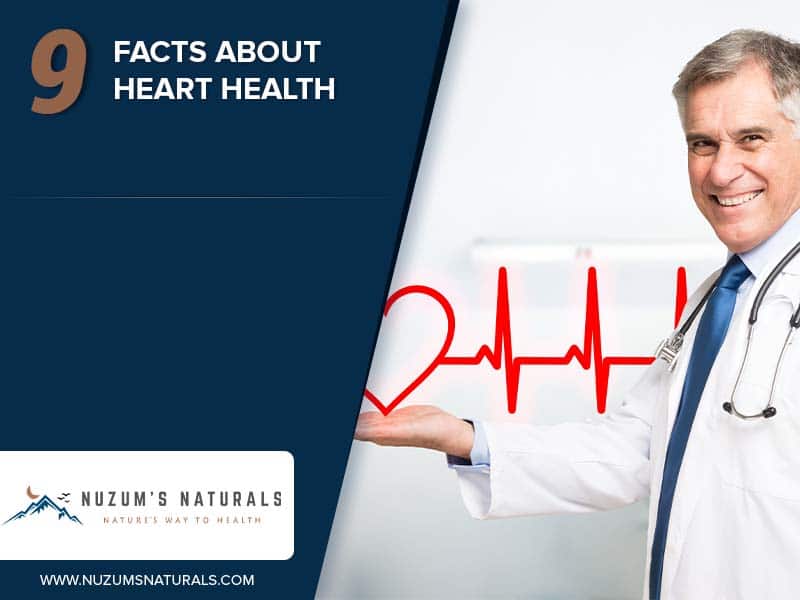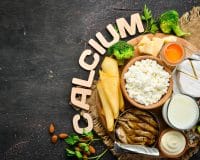5 Points On Vitamin C For Immune Health
Vitamin C, also known as ascorbic acid and ascorbate, is a vitamin full of benefits found in various foods and sold as a dietary supplement. It is an essential nutrient involved in the repair of tissues and the enzymatic production of certain neurotransmitters. It is also important for immune system function. In this article, we will share with you some facts you need to know about vitamin C and your immune health.
First, we’ll go over vitamin C’s uses and the vitamin itself. Then, we’ll talk about free radical damage. And finally, we’ll close with vitamin C in food and its antioxidant properties. You will be able to increase your immunity health with vitamin C after reading this article.
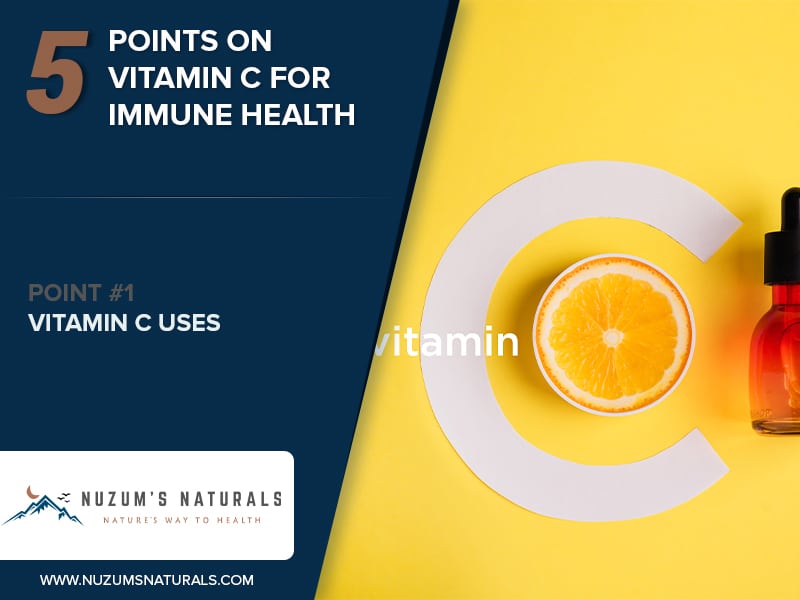
1Vitamin C Uses
Vitamin C is critical for the growth and repair of all tissues in the body, and it’s commonly used to create a key protein that is used to make the skin, tendons, ligaments, and blood vessels. It also promotes wound healing and the formation of scar tissue. Vitamin C aids immune defense by supporting both innate and adaptive cellular operations in addition to supporting certain cellular functions of both the innate and adaptive immune systems. A vitamin C shortage causes immunity to deteriorate while increasing susceptibility to illnesses.
What effect does vitamin C have on your skin? Its antioxidant properties and role in collagen synthesis make it a crucial component of skin health. Vitamin C’s involvement in collagen synthesis makes it a vital molecule for wound healing. Clinical research suggests that vitamin C may speed up wound healing in people who don’t have a deficiency.
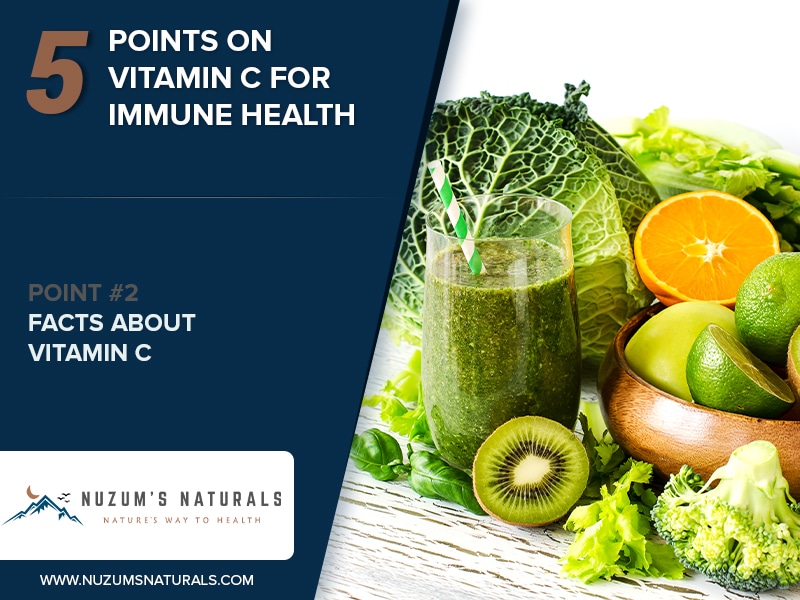
2Facts About Vitamin C
Vitamin C is a water-soluble vitamin that is found in some foods, added to others, and available as a dietary supplement. Humans, unlike most other animals, cannot make vitamin C endogenously, so it is an essential dietary component. Vitamin C has been shown in studies to have the ability to regenerate other antioxidants within the body, including alpha-tocopherol (vitamin E), over time. Vitamin C is also known as L-ascorbic acid and is classified as a required vitamin for a variety of reasons.
Vitamin C is required for a variety of metabolic processes, and it is especially vital for many gut, brain, and adrenal-related actions. Some customers may ask their doctor or pharmacist, “What exactly is a vitamin?” Simply put, a vitamin is both an organic chemical that contains carbon, which is essential to the body’s nutrition, and an inherent nutrient that the body cannot create adequate amounts of on its own and must be obtained through food.

3Free Radical Damage
How does the body already have free radicals naturally? Free radicals are chemical by-products of physiological activities, such as metabolism, and the body’s ability to convert air and food into chemical energy is dependent on a chain reaction. Furthermore, free radicals attack alien invaders that float through our veins in our bodies, helping form part of the immune system.
On the other side of the coin, can free radicals do harm? Several elements might be considered a “risk of free radicals,” including a domino effect that may eventually disrupt and damage a whole cell, a free radical chain reaction that might result in broken cell membranes (which can alter what enters and exits the cells), oxidative stress (when there are too many free radicals and too much cellular damage), and connections to aging. This is according to sources like Rice University, Harvard School of Public Health, and Pharmacognosy Review.
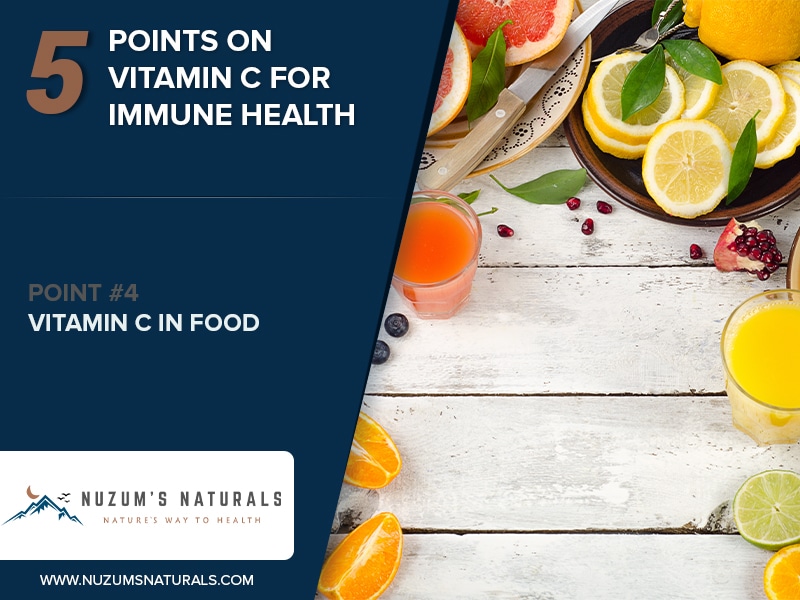
4Vitamin C In Food
Vitamin C is not stored in the human body. This nutrient must be consumed in one’s diet on a daily basis. It’s generally accepted that fruits and vegetables are the greatest sources of vitamin C and that patients may meet their daily needs by eating a variety of these nutritious foods.
If food is the source, what kind of foods have the highest amounts of vitamin C? Sweet red pepper(raw), tomato juice, orange juice, sweet green pepper, hot green chili peppers (raw), oranges, strawberries, and papaya are all good sources of vitamin C. Vitamin C is found in some fortified breakfast cereals as well. Fruits and vegetables may lose vitamin C if they are kept for too long or cooked excessively.
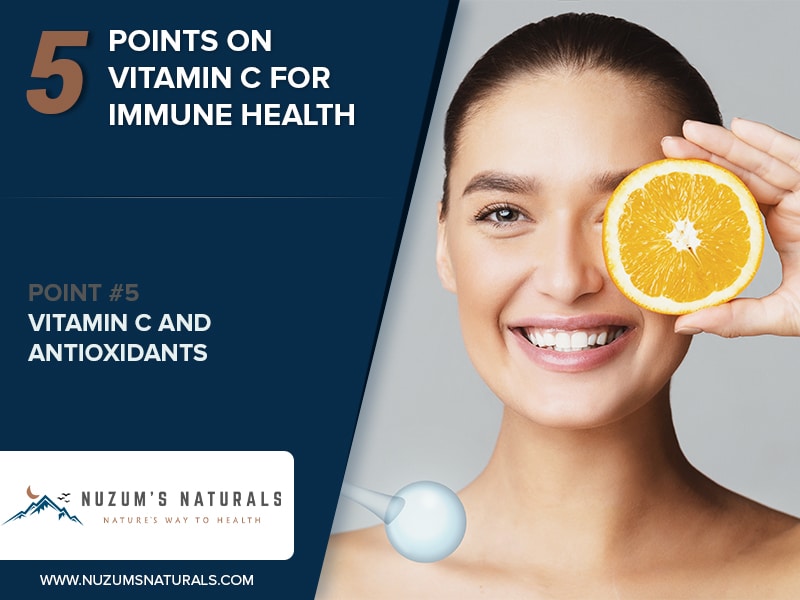
5Vitamin C And Antioxidants
The antioxidant activity of vitamins C and E is superior. Antioxidants are chemicals that prevent oxidation. A chemical reaction can create free radicals, resulting in chain reactions that may harm a creature’s cells. However, antioxidants may also be thought of as compounds that remove potentially harmful substances from a living creature.
Vitamin C is an antioxidant that prevents cellular components from being damaged by free radicals. Vitamin C is one of the most important functions that it performs. The vitamin may directly scavenge free radicals in the “aqueous” cell phase and circulation, according to research.

Vitamin C, commonly known as ascorbic acid, is a vitamin that contains numerous health benefits. It’s also available as a dietary supplement and is an important nutrient involved in the healing of tissues and the manufacture of certain neurotransmitters via enzymes. Vitamin C is extremely crucial for immune system performance. We’ve got some information about vitamin C and your immunological well-being that you might find useful.
First, we went over vitamin C’s uses and the vitamin itself. Then, we talked about free radical damage. And finally, we closed with vitamin C in food and its antioxidant properties. You may enhance your immune health with vitamin C now that you’ve finished reading.












